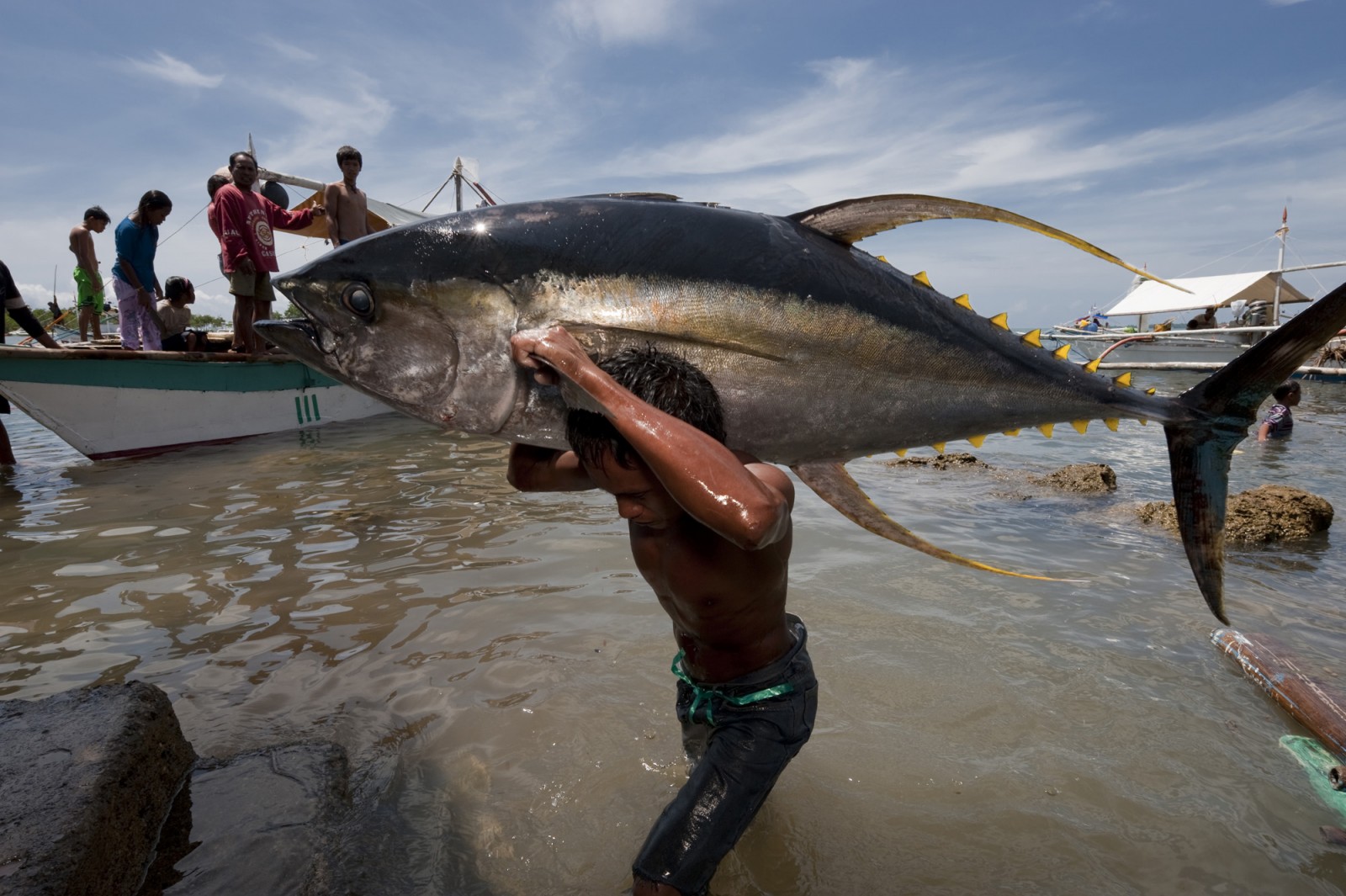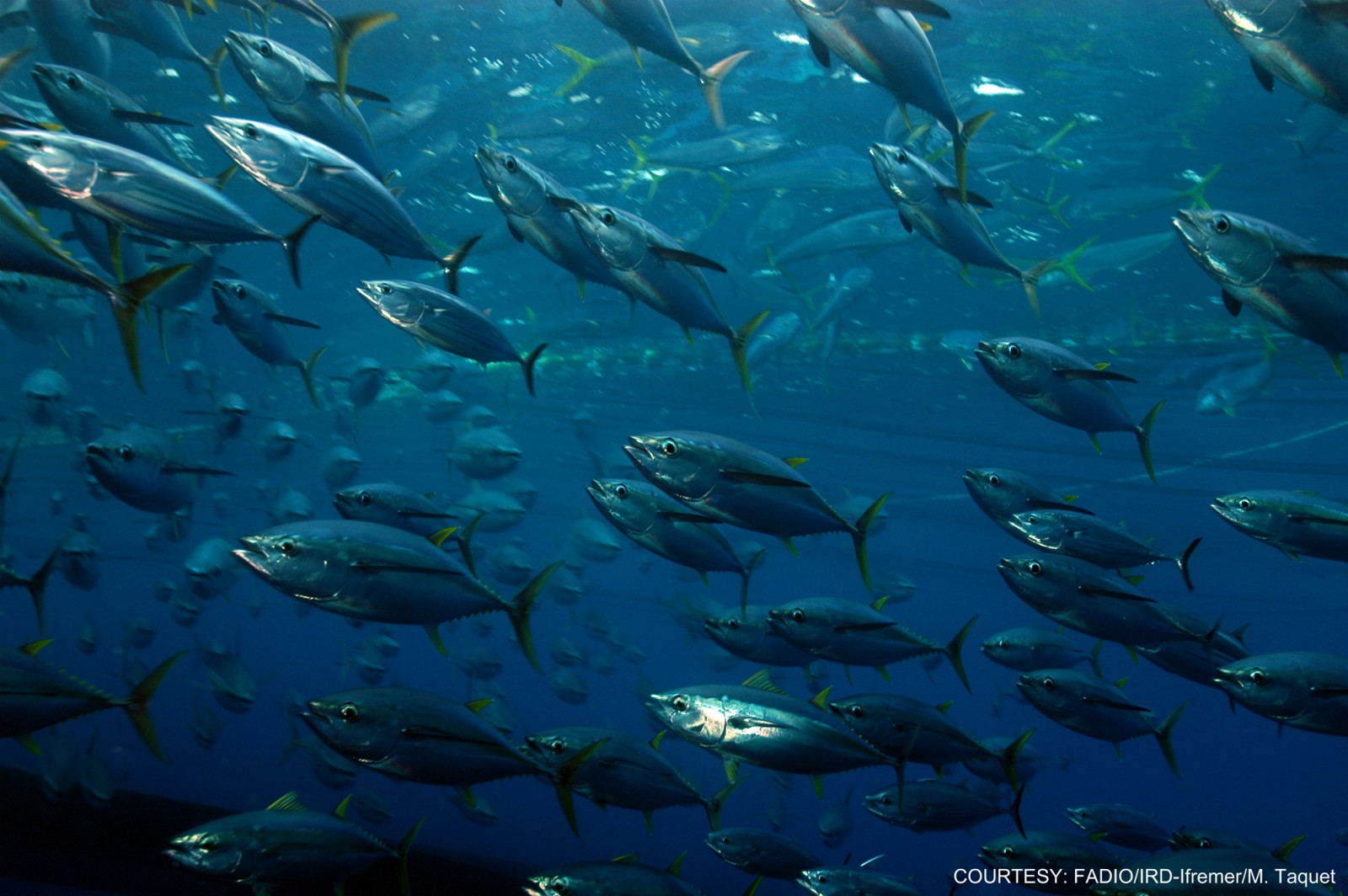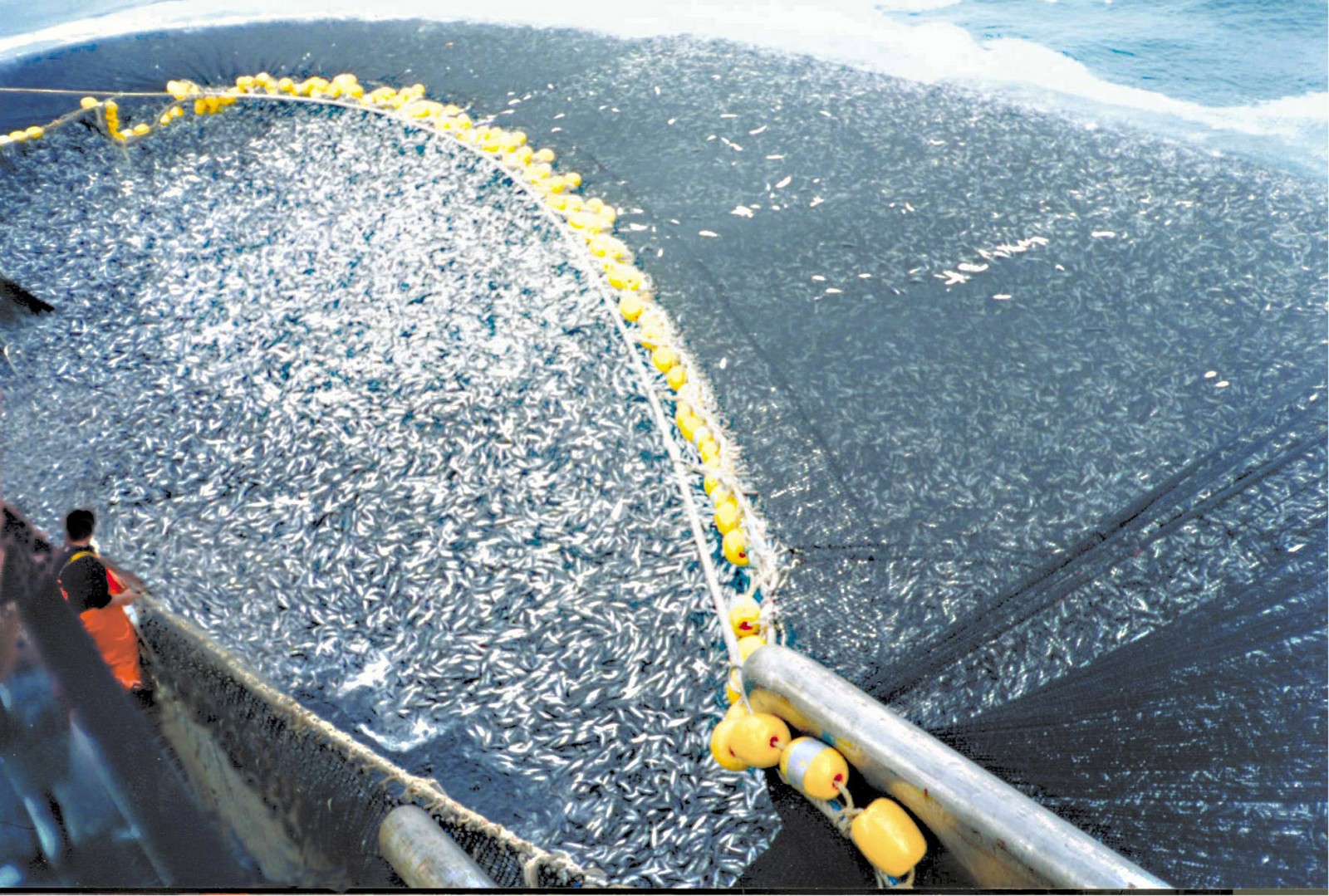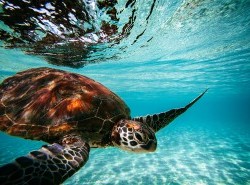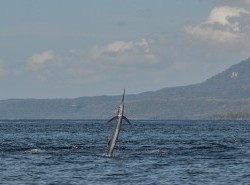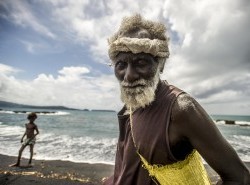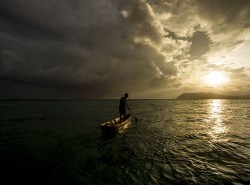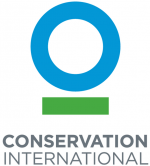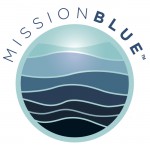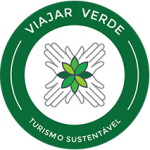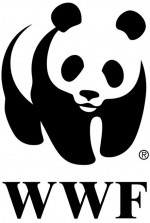Efforts to bring the first ever MSC certified Coral Triangle tuna to the global market have taken a huge leap forward. One of the big three tuna traders in the world, Taiwan's FCF, has signed an memorandum of understanding with Pacifical, the global marketing company of the Parties of the Nauru Agreement (PNA) countries, a coalition of Pacfic nations involved in sustainable purse seine fishing.
The Marine Stewardship Council (MSC) ecolabel has been called the “gold standard” of sustainable fisheries certifications, representing the most prominent internationally recognized set of environmental criteria to determine the sustainability and effective management of a fishery. So when a large fishery signs on to apply MSC standards, it's the closest thing to a guarantee that the fish have been harvested legally and responsibly.
The agreement means that some 200,000 tonnes of certified tuna will soon be reaching consumers all over the world. FCF made the commitment through the Papua New Guinea-based company Nabawan—a joint investment with the Philippines’ Trans Pacific Journey Fishing and TSP Mariner Industries—to purchase tuna from the Pacific Islands harvested in accordance with MSC standards.
Pacifical was established in 2011 to support the delivery of MSC-certified skipjack tuna from the eight PNA member countries to markets around the world. The PNA member countries—the Federated States of Micronesia, Kiribati, Marshall Islands, Nauru, Palau, Papua New Guinea, Solomon Islands, and Tuvalu—are home to the biggest tuna purse seine fishery in the world, providing half of the global supply of skipjack tuna.
Two of the countries, Papua New Guinea and the Solomon Islands, are also among the six nations of the Coral Triangle, one of the world’s most important marine ecoregions in terms of biodiversity as well as economic importance.
“These PNA fisheries have voluntarily accepted a higher standard of management with strong catch accounting, 100% observer coverage, and various by-catch avoidance and mitigation measures,” Cook says. “Thus, the agreement should implicitly improve the state of fisheries in the Western and Central Pacific Ocean (WCPO) by encouraging better behaviour among fishery participants.”
“As other fishing and fish processing companies join in partnership with the PNA and attain MSC certification for their product, this helps to build more sustainable fisheries in the WCP region and provide more certified products on the market,” says Jackie Thomas, Leader of the WWF Coral Triangle Programme.
“The PNA has been a leader in the fishing industry in the Western Central Pacific (WCP) region through its success in achieving MSC certification almost 3 years ago, and through the measures it has put in place for traceability and conservation management measures for skipjack tuna.”
Public awareness of the benefits of buying MSC-certified products has grown, Cook notes. “Thanks to increased attention in the media on the plight of our oceans, people are becoming more aware of sustainability in general, as well as the MSC brand.”
The significance of this evolving preference has not been lost on the world’s biggest tuna companies. Earlier this month, Tri Marine, a tuna trading competitor of FCF, also announced plans to seek MSC certification for fish aggregation device (FAD)-free catches of skipjack and yellowfin tuna in the WCPO by February 2016.
FADs—man-made structures placed in the sea to attract schools of fish—have increasingly become a serious issue because they also attract juvenile yellowfin and bigeye tuna, as well as sharks and dolphins, mainly through their association with schools of skipjack.
The agreement means that some 200,000 tonnes of certified tuna will soon be reaching consumers all over the world. FCF made the commitment through the Papua New Guinea-based company Nabawan—a joint investment with the Philippines’ Trans Pacific Journey Fishing and TSP Mariner Industries—to purchase tuna from the Pacific Islands harvested in accordance with MSC standards.
Pacifical was established in 2011 to support the delivery of MSC-certified skipjack tuna from the eight PNA member countries to markets around the world. The PNA member countries—the Federated States of Micronesia, Kiribati, Marshall Islands, Nauru, Palau, Papua New Guinea, Solomon Islands, and Tuvalu—are home to the biggest tuna purse seine fishery in the world, providing half of the global supply of skipjack tuna.
Two of the countries, Papua New Guinea and the Solomon Islands, are also among the six nations of the Coral Triangle, one of the world’s most important marine ecoregions in terms of biodiversity as well as economic importance.
Transparent and traceable
This development can only bode well for tuna fisheries in the Western Central Pacific, says Alfred “Bubba” Cook, Western and Central Pacific Tuna Programme Manager for WWF’s Smart Fishing Initiative (SFI), the WWF global fisheries programme. Part of SFI’s strategy includes encouraging all stakeholders along the supply chain—from fishers, processors, and sellers to buyers and retailers—to commit to certified fisheries that are fully transparent and traceable.“These PNA fisheries have voluntarily accepted a higher standard of management with strong catch accounting, 100% observer coverage, and various by-catch avoidance and mitigation measures,” Cook says. “Thus, the agreement should implicitly improve the state of fisheries in the Western and Central Pacific Ocean (WCPO) by encouraging better behaviour among fishery participants.”
“As other fishing and fish processing companies join in partnership with the PNA and attain MSC certification for their product, this helps to build more sustainable fisheries in the WCP region and provide more certified products on the market,” says Jackie Thomas, Leader of the WWF Coral Triangle Programme.
“The PNA has been a leader in the fishing industry in the Western Central Pacific (WCP) region through its success in achieving MSC certification almost 3 years ago, and through the measures it has put in place for traceability and conservation management measures for skipjack tuna.”
Public awareness of the benefits of buying MSC-certified products has grown, Cook notes. “Thanks to increased attention in the media on the plight of our oceans, people are becoming more aware of sustainability in general, as well as the MSC brand.”
The significance of this evolving preference has not been lost on the world’s biggest tuna companies. Earlier this month, Tri Marine, a tuna trading competitor of FCF, also announced plans to seek MSC certification for fish aggregation device (FAD)-free catches of skipjack and yellowfin tuna in the WCPO by February 2016.
FADs—man-made structures placed in the sea to attract schools of fish—have increasingly become a serious issue because they also attract juvenile yellowfin and bigeye tuna, as well as sharks and dolphins, mainly through their association with schools of skipjack.
252 certified fisheries
WWF established the MSC in collaboration with Unilever in 1996. The MSC website reports that some 252 fisheries around the world are now certified, accounting for 9% of global wild fisheries production, around 8 million metric tonnes of seafood. Major seafood buyers, among them leading supermarket and retail chains in Europe, have pledged to purchase MSC-certified seafood products. There are over 25,000 such products on store shelves in 40 countries, including fresh, frozen, smoked, and canned fish, as well as fish oil supplements and other allied products.This milestone agreement between FCF and Pacifical is a result of the extended collective efforts of businesses, governments, and NGOs such as WWF, Cook says. “They are also examples of the way WWF works collaboratively and cooperatively with all stakeholders to help build a strategic partnership dedicated to conservation and sustainability of the resource. In this way, WWF is seen as a leader at developing solutions to complex conservation problems.”
The next step, then, would be to get even more players to join the certification game—and make MSC the leading choice for sustainable tuna worldwide, Cook says. “Encouraging companies that WWF has a relationship with to source sustainably harvested tuna under the MSC brand would not only encourage fishing companies to increase their supply, but also demonstrate to other buyers the value of purchasing and selling MSC products.”
“WWF has a wide reach as a global network,” says Thomas. “By providing the justification to fishing industries that ‘business as usual’ will see the decline of commercial fish stocks, WWF is able to present powerful arguments and credible Fisheries Improvement Project (FIP) models that can set fisheries on the path to improving their practices and reaching the standards of certification.”
